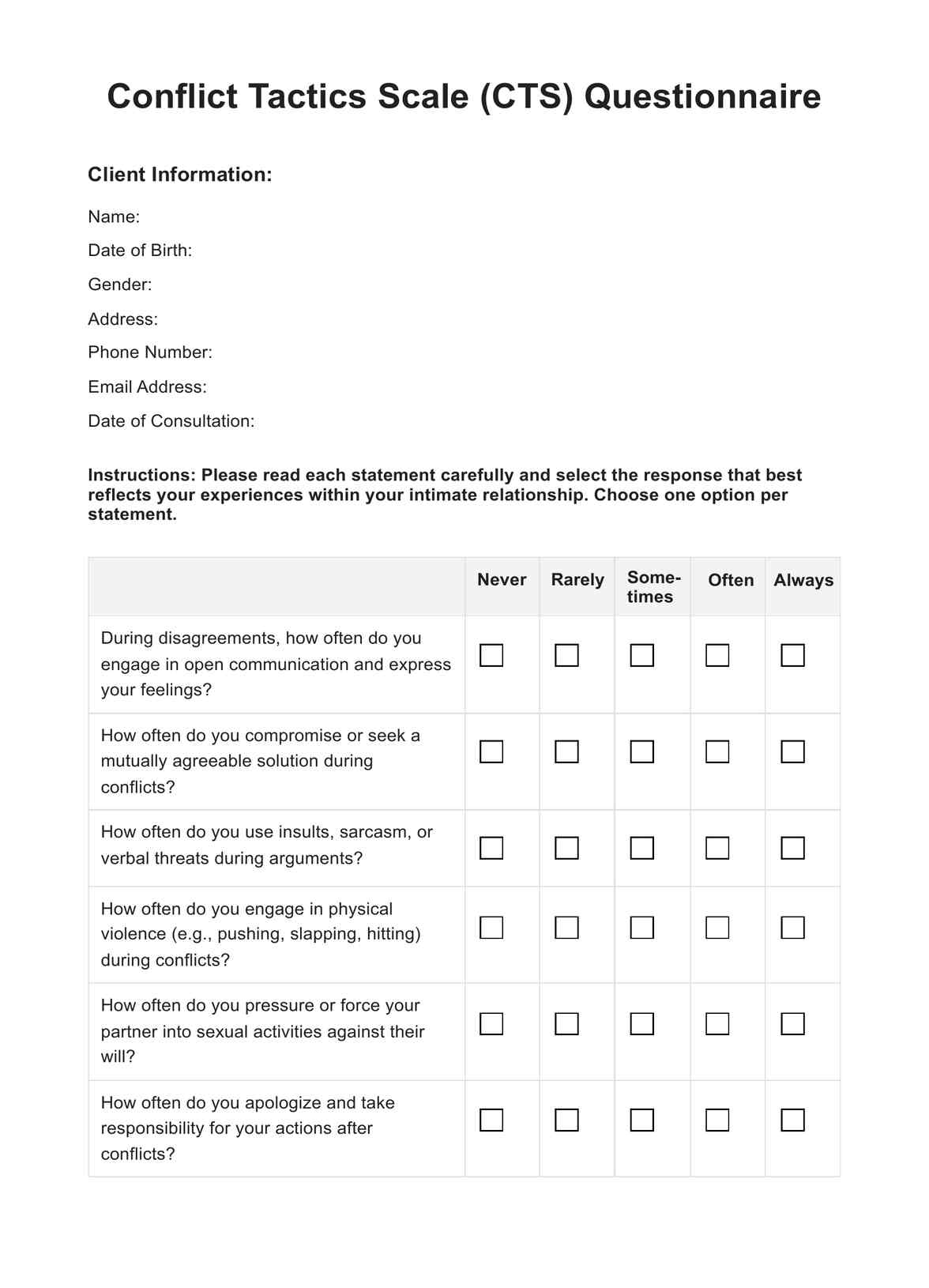Sociologist Murray A. Straus developed the Conflict Tactics Scale in the 1970s. Straus and his colleagues conducted extensive research to create a reliable and valid measure of conflict-related behaviors.

Conflict Tactics Scale
Explore relationship dynamics with Conflict Tactics Scale. Measure conflict strategies and violence in intimate relationships. Gain valuable insights.
Conflict Tactics Scale Template
Commonly asked questions
The Conflict Tactics Scale measures a range of conflict-related behaviors, including negotiation, compromise, verbal aggression, physical aggression, and sexual coercion. It provides insights into the frequency and severity of these behaviors within intimate relationships.
The Conflict Tactics Scale is typically administered through a self-report questionnaire. Participants read each statement carefully and select the response that best reflects their experiences within their intimate relationship.
EHR and practice management software
Get started for free
*No credit card required
Free
$0/usd
Unlimited clients
Telehealth
1GB of storage
Client portal text
Automated billing and online payments











